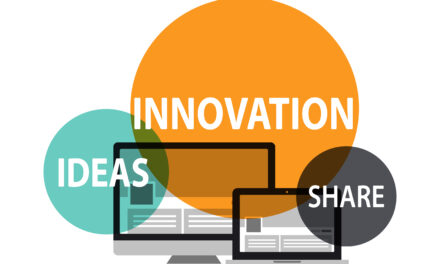In recent years, the advent of Artificial Intelligence (AI) has revolutionized various industries, and digital marketing is no exception. Integrating AI in digital marketing strategies has transformed how businesses engage with customers, optimize campaigns, and achieve their marketing objectives. This article delves into the critical role of AI in digital marketing, exploring its applications, benefits, and future potential.
Understanding AI in Digital Marketing
Artificial Intelligence, at its core, involves using machine learning algorithms and data analytics to emulate human intelligence. In digital marketing, AI can analyze vast amounts of data, identify patterns, predict outcomes, and make data-driven decisions. This capability allows marketers to create highly personalized and effective marketing campaigns, automate repetitive tasks, and improve customer experiences.
Key Applications of AI in Digital Marketing
1. Personalization and Customer Segmentation
One of AI’s most significant impacts on digital marketing is its ability to personalize customer experiences. AI algorithms can analyze customer data, such as browsing behaviour, purchase history, and preferences, to create personalized content and recommendations.
For example, Amazon’s recommendation system uses AI to suggest products based on a customer’s past behaviour, increasing the likelihood of a purchase. Similarly, Netflix leverages AI to recommend movies and TV shows tailored to individual users’ tastes.
2. Predictive Analytics
Predictive analytics powered by AI can forecast future customer behaviour based on historical data. Marketers can use this information to anticipate customer needs, optimize marketing strategies, and allocate resources more effectively.
According to a report by MarketsandMarkets, the predictive analytics market is expected to grow from $10.5 billion in 2020 to $28.1 billion by 2026, indicating its increasing importance in digital marketing.
3. Chatbots and Customer Service
AI-powered chatbots have become an integral part of customer service in digital marketing. These chatbots can handle customer inquiries 24/7, providing instant responses and freeing up human agents for more complex tasks.
For instance, Sephora’s chatbot on Facebook Messenger helps customers find products, book appointments, and get makeup tips, enhancing the overall customer experience. A study by Grand View Research predicts that the global chatbot market size will reach $9.4 billion by 2024 source.
4. Content Creation and Curation
AI can assist in content creation by generating articles, social media posts, and even video scripts. Tools like OpenAI’s GPT-3 can produce high-quality content based on a few input keywords, saving marketers time and effort.
Additionally, AI can curate content by analyzing user behaviour and recommending relevant articles, videos, and social media posts. Platforms like Curata use AI to curate content that aligns with a brand’s target audience and marketing goals.
5. Email Marketing
AI enhances email marketing by enabling marketers to send personalized emails at the right time to the right audience. AI algorithms can analyze customer behaviour and preferences to craft tailored email campaigns that resonate with recipients.
Mailchimp, a popular email marketing platform, uses AI to optimize send times, subject lines, and content, resulting in higher open and click-through rates. According to a study by McKinsey, personalized emails can deliver six times higher transaction rates than non-personalized emails.
6. Social Media Marketing
AI tools can analyze social media data to identify trends, sentiment, and user preferences. This information helps marketers create targeted social media campaigns, engage with their audience more effectively, and measure the impact of their efforts.
Platforms like Hootsuite and Sprout Social leverage AI to provide insights into social media performance, recommend optimal posting times, and identify influencers relevant to a brand’s niche.
7. Programmatic Advertising
Programmatic advertising uses AI to automate the buying and selling of ad space in real time. This approach ensures that ads are shown to the right audience at the right time, maximizing marketers’ return on investment (ROI).
A study by eMarketer predicts that programmatic advertising will account for over 88% of all digital display ad spending in the U.S. by 2021 source.
8. Voice Search Optimization
With the rise of voice-activated assistants like Amazon’s Alexa and Google Assistant, optimizing for voice search has become crucial. AI is key in understanding natural language queries and providing relevant search results.
According to a report by Juniper Research, 8 billion voice assistants will be in use by 2023, highlighting the growing importance of voice search optimization in digital marketing.
Benefits of AI in Digital Marketing
1. Improved Efficiency
AI automates repetitive tasks such as data analysis, content creation, and customer service, allowing marketers to focus on strategic activities. This automation leads to improved efficiency and productivity.
2. Enhanced Customer Experience
AI enhances the overall customer experience by personalizing interactions and providing timely responses. Personalized recommendations, chatbots, and targeted marketing campaigns increase customer satisfaction and loyalty.
3. Data-Driven Insights
AI’s ability to analyze vast amounts of data provides marketers with actionable insights. These insights enable marketers to make informed decisions, optimize campaigns, and achieve better results.
4. Cost Savings
Automating tasks with AI can lead to significant cost savings. For example, chatbots reduce the need for extensive customer service teams, and predictive analytics optimize marketing spend by targeting high-value customers.
5. Competitive Advantage
Businesses that leverage AI in their digital marketing strategies gain a competitive edge. AI allows for more precise targeting, better customer insights, and more effective marketing campaigns, helping businesses stay ahead of their competitors.
Future Potential of AI in Digital Marketing
The future of AI in digital marketing looks promising, with several trends and advancements on the horizon:
1. Advanced Personalization
AI will continue to advance in its ability to deliver hyper-personalized experiences. By analyzing more granular data points, AI will enable marketers to create even more tailored content and recommendations.
2. Enhanced Predictive Analytics
As AI algorithms become more sophisticated, predictive analytics will become more accurate and reliable. This will allow marketers to anticipate customer needs and trends with greater precision.
3. Integration with Augmented Reality (AR) and Virtual Reality (VR)
AI’s integration with AR and VR will create immersive and interactive marketing experiences. Brands can engage customers in new and exciting ways, such as virtual try-ons and interactive product demonstrations.
4. Ethical AI Practices
As AI becomes more prevalent, there will be a growing emphasis on ethical AI practices. Marketers must ensure transparency, fairness, and accountability in their AI-driven campaigns to maintain customer trust.
5. AI-Driven Creativity
AI will increasingly assist in creative processes, from generating innovative campaign ideas to designing visually appealing content. This collaboration between human creativity and AI capabilities will result in more engaging and impactful marketing campaigns.
Conclusion
Artificial Intelligence is undeniably transforming the digital marketing landscape. From personalization and predictive analytics to chatbots and programmatic advertising, AI offers numerous benefits that enhance marketing strategies and drive business growth. As AI technology evolves, its role in digital marketing will only become more significant.
We invite you to share your thoughts and experiences on leveraging AI in digital marketing. How has AI impacted your marketing strategies? What future trends do you foresee? Join the conversation in the comments below.
References
- Predictive Analytics Market Size, Share & Trends Analysis Report By Solution (Software, Services), By Deployment (Cloud, On-premise), By Enterprise Size (Large Enterprises, Small & Medium Enterprises), By End Use, By Region, And Segment Forecasts, 2021 – 2028 – MarketsandMarkets
- Chatbot Market Size, Share & Trends Analysis Report By Type (Bots For Service, Bots For Social Media, Bots For Payments/Order Processing, Bots For Marketing), By End Use, By Application, By Region, And Segment Forecasts, 2020 – 2027 – Grand View Research
- The science of customer delight – McKinsey
- Programmatic Digital Display Ad Spending in the U.S. – eMarketer
- Voice Assistants Research Report – Juniper Research
Disclaimer
The information provided in this article is for general informational purposes only. All information in the article is provided in good faith; however, we make no representation or warranty of any kind, express or implied, regarding the accuracy, adequacy, validity, reliability, availability, or completeness of any information in the article. Readers are encouraged to seek professional advice before making any business decisions based on the information provided in this article.







